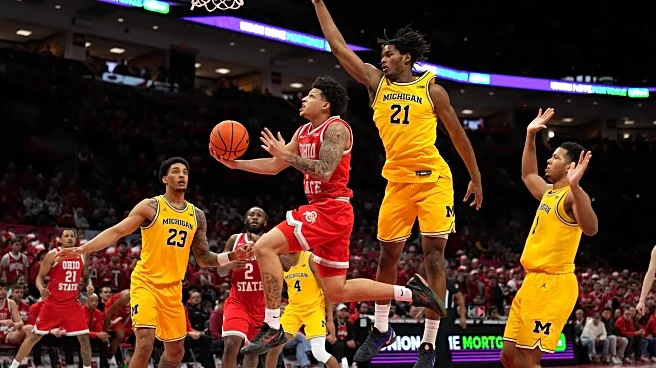Rapid Read • 8 min read
Tristan Rogers, renowned for his role as Robert Scorpio on the soap opera 'General Hospital,' has died at the age of 79 from lung cancer. His death was confirmed by his longtime manager, Meryl Soodak, who noted that Rogers had never been a smoker. Rogers' portrayal of Scorpio was a significant part of his career, and he was deeply committed to the role, transforming it from a one-day job into a major character. His passing has been met with sorrow from the 'General Hospital' community, including showrunner Frank Valentini, who expressed condolences and highlighted Rogers' impact on the show and its fans over 45 years.
AD
Tristan Rogers' death marks the loss of a significant figure in the world of daytime television. His role as Robert Scorpio was pivotal in elevating 'General Hospital' during the 1980s, contributing to the show's popularity and cultural impact. Rogers' character was part of iconic storylines that drew massive audiences, including the famous wedding of Luke and Laura. His contributions helped shape the soap opera genre, influencing storytelling and character development. The loss of Rogers is felt deeply by fans and colleagues, underscoring his legacy in entertainment and the enduring appeal of 'General Hospital.'
The passing of Tristan Rogers may lead to tributes and retrospectives celebrating his career and contributions to 'General Hospital.' The show may incorporate his legacy into future storylines or special episodes, honoring his impact on the series. Fans and colleagues are likely to continue sharing memories and expressing their admiration for Rogers, highlighting his influence on the soap opera industry. The show's producers and cast may also reflect on his role in shaping 'General Hospital' and its success over the decades.
Tristan Rogers' career exemplifies the evolution of soap operas and their role in American television culture. His ability to transform a minor role into a beloved character demonstrates the power of creative freedom and actor input in shaping narratives. Rogers' work highlights the importance of character-driven storytelling in engaging audiences and sustaining long-term interest in television series. His legacy may inspire future actors and producers to embrace innovative approaches to character development and narrative structure in the entertainment industry.
AD
More Stories You Might Enjoy












